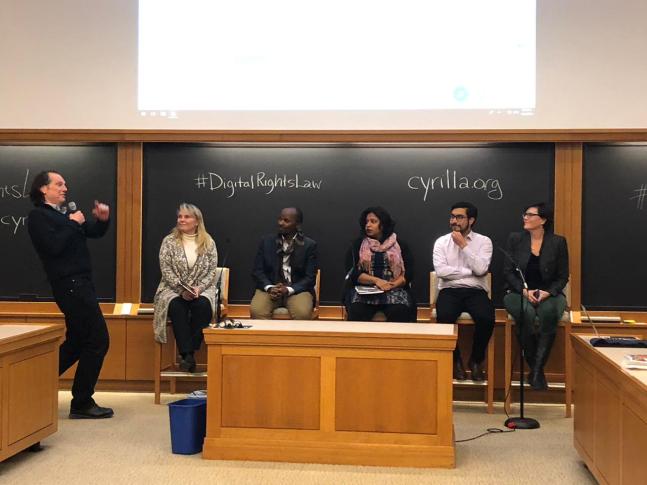
The CYRILLA Collaborative is a global initiative that seeks to map and analyse the evolution and impacts of legal frameworks in digital environments by aggregating, organising and visualising distributed legal data through open research methodologies, data models, taxonomies and databases. As one of the core partners, APC will be documenting legislation and case law related to digital rights in Southeast Asia, and using this data as a springboard for further research and advocacy, with a specific focus on the way governments use articles related to religion to censor online speech.
CYRILLA stands for the Cyberrights Research Initiative and Localized Legal Almanac, referring to the Collaborative’s keystone initiative CYRILLA.org, an open, federated online database that facilitates and accelerates the sharing, comparison, visualisation and interoperability of legal information on digital rights.
CYRILLA addresses an increasingly urgent need “for comprehensive databases aggregating legislation and case law across a variety of jurisdictions” expressed by digital rights researchers, journalists, civil society advocates, human rights defenders, legal professionals, and others seeking to shape rapidly evolving legal frameworks for digital rights worldwide.
At its core, CYRILLA organises and makes accessible legislation and case law that affect human rights in digital environments so that a wide range of actors can more readily and confidently assess legal trends and their impacts in digitally networked spaces.
APC, the Centre for Intellectual Property and Information Technology Law (CIPIT) at Strathmore University, Columbia Global Freedom of Expression, Derechos Digitales, HURIDOCS and Social Media Exchange (SMEX) are the core partners in the CYRILLA Collaborative. SMEX manages the CYRILLA platform and continues to upload legal data from Middle East and North Africa. While the Collaborative is working together on building a taxonomy and data model, Columbia Global Freedom of Expression, CIPIT and Derechos Digitales are adding legislation and case law to their individual databases, which will be interoperable with the CYRILLA platform. APC will upload the collected legal data from South and Southeast Asia. For its part, HURIDOCS serves as the technical partner, managing Uwazi, which is the backbone of the CYRILLA database.
Key objectives
-
Produce research related to laws criminalising online free expression in a number of countries in Southeast Asia.
-
Collect and analyse legal data, including legislation and case law, from the same countries.
-
Mount campaigns for legal reform based on the research and analysis.
-
Use the research findings to publish amicus briefs and support national-level strategic litigation.
-
Engage with international bodies concerning legal frameworks related to online freedom of expression.
On ways to get involved in this initiative, please read here and follow @cyrilla on Twitter.
Read a recap on the last year here.
Image: @cyrilla.
Member for
7 years 7 months